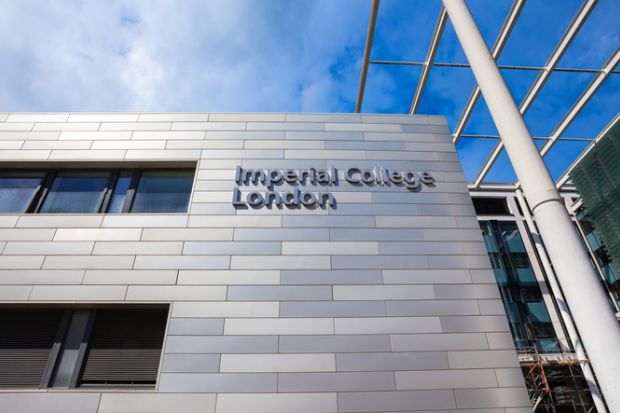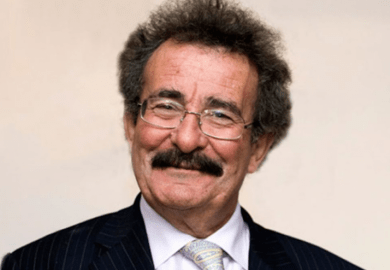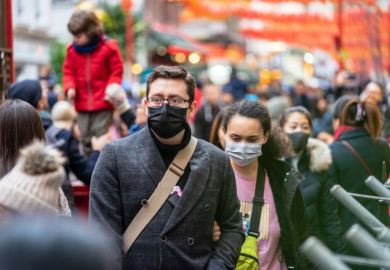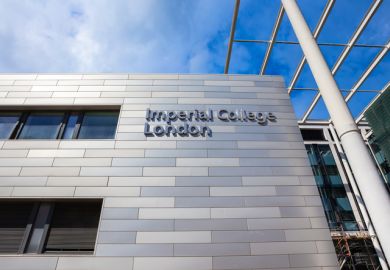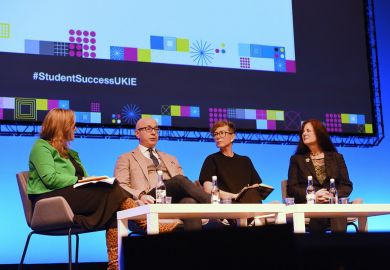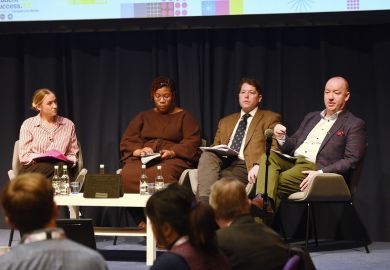The UK government’s delay in locking down society in the spring was the “biggest mistake” of the pandemic, according to Imperial College London epidemiologist Neil Ferguson, who also praised the global scientific community’s “remarkable” response to Covid-19.
The former key adviser to the UK government during the early stages of the coronavirus pandemic was speaking at Times Higher Education’s THE Live virtual conference.
Professor Ferguson, the head of Imperial’s Covid-19 response team, was asked about the successes and failures of the UK’s pandemic response in an interview with THE editor John Gill.
On successes, Professor Ferguson said the UK had “eventually” scaled up testing to levels that were “some of the highest in Europe, if not the highest”.
He also said the UK had a more “sophisticated surveillance system than almost any country in Europe”, giving the examples of the Office for National Statistics survey of infection rates in the general population and the Imperial REACT study.
“Funnily enough, I think government has been informed – not driven – by the science and the scientific advisory structures have worked well,” he continued.
However, Professor Ferguson added: “I think clearly the biggest mistake was the time taken to lock down.”
There were “multiple causes” of that delay, but the biggest issue, “shared with a number of European countries”, was “too much time was spent early on” testing “a few hundred” travellers returning from China and Asia when efforts would have been better focused on those returning from infection hotspots in Europe, he said.
The UK “didn’t stand up surveillance [of infections] in hospitals anywhere near fast enough”, when this “would have given a handle on the scale of the epidemic” and allowed a faster response, he continued.
This surveillance of infections in hospitals would be crucial in any future pandemic, Professor Ferguson said. “You have to expect emerging infections to spread globally, and we need to pick them up in our country earlier when that happens in future.”
More broadly, Professor Ferguson said the “scientific community has responded remarkably” during the pandemic.
“The sort of things which typically drive academics – academic competition, publishing in the best journals – have gone by the wayside, with basically everyone publishing online preprints all the time, sharing data very freely,” he said.
“Obviously, the vaccine development effort and public-private partnership between industries and universities has been very encouraging, and the international coordination.”
But he added that in age of polarisation, “the political response has become more and more difficult”.
He also thought the pandemic had “given the public more of a sense of how scientific research works” – that it was not about sudden “breakthroughs” but a “more messy” process.
On the question of whether university teaching should have been solely online in the UK this term, Professor Ferguson said that “we could have learned a few lessons from the US” and had more coordination on testing approaches across the sector, but that a lot of universities “have done a very good job” of minimising risks.
Asked about his “Professor Lockdown” tag in some media coverage, he said there was a “completely false narrative that I was responsible for lockdown in this country” or around the world.
In reality, “multiple” teams of scientists advised the government, he added.
“It’s unfortunate that in the media people like heroes and villains,” Professor Ferguson continued. “Most scientists, myself included, are more human than that.”
It is “unfortunate” that there is “an element of political discourse which wants to look for someone to blame”, he added.
On the wider picture, Professor Ferguson said that “quite remarkable” progress on vaccines means that if everyone in the UK over age of 50 can be vaccinated by the end of March, we could be at “something closer to normal by Easter next year”.
But he cautioned that “if we don’t keep a lid” on the pandemic through to March and April, there could be “rapidly surging cases and deaths”.
He closed by reflecting on the relationship between scientific advisers and the government.
“At the end of the day, the government makes policy,” Professor Ferguson said. “I don’t think it’s scientists’ role to say, ‘The government should do this.’ I think it’s our role to say, ‘This is the evidence base, these are the uncertainties; if you do ‘A’ this is likely to happen, if you do ‘B’ this is likely to happen.’”
He added: “I wouldn’t criticise any politician for making the decisions they did at a certain point, certainly not in this country. What I’ve seen is people struggling to do they best they can. Not all of those decisions have been perfect…both on the science side and the political decision-making side.”
Register to continue
Why register?
- Registration is free and only takes a moment
- Once registered, you can read 3 articles a month
- Sign up for our newsletter
Subscribe
Or subscribe for unlimited access to:
- Unlimited access to news, views, insights & reviews
- Digital editions
- Digital access to THE’s university and college rankings analysis
Already registered or a current subscriber?
